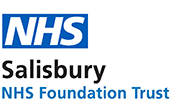

Your diagnosis will be discussed at a multi-disciplinary team (MDT) meeting, which involves specialists across your hospital medical team. They will consider the type of oesophageal cancer you have, it’s stage, location and your health, in order to determine the best course of treatment for you.
You will meet with your Consultant and Clinical Nurse Specialist (CNS), so they can fully explain your diagnosis and the treatment plan with you and answer any questions you may have.
Treatment of cancer of the oesophagus is likely to involve one or a combination of the following: surgery, chemotherapy, radiotherapy or chemoradiotherapy.
When a cure is not possible, a number of treatments are available to relieve symptoms.
Treatments offered may involve a combination of some of the following:
Our staff at Salisbury District Hospital have long been well regarded for the quality of care and treatment they provide for our patients and for their innovation, commitment and professionalism. This has been recognised in a wide range of achievements and it is reflected in our award of NHS Foundation Trust status. This is afforded to hospitals that provide the highest standards of care.
